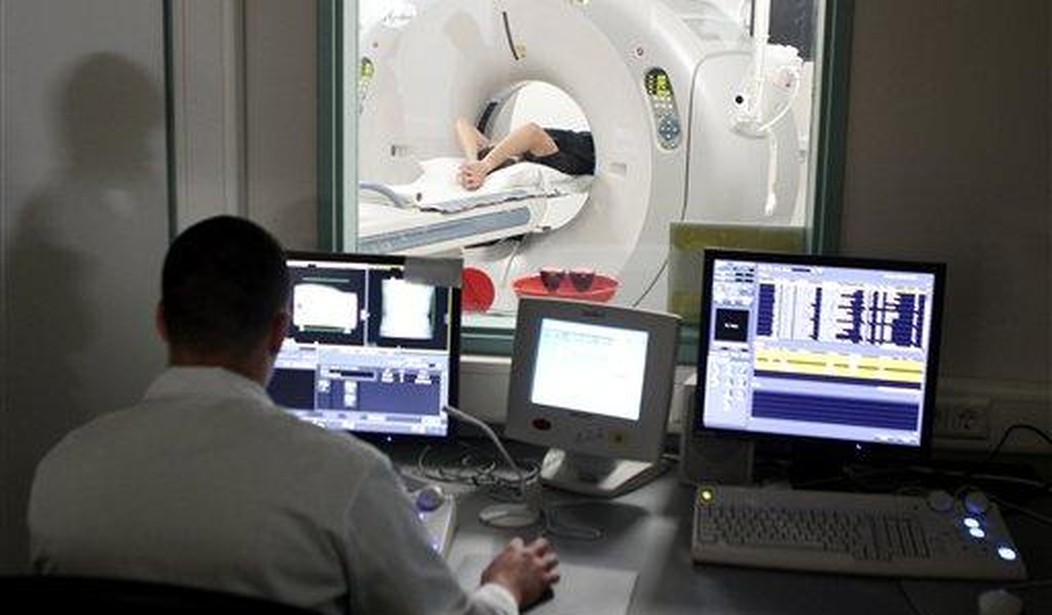Over the course of the last six months, a populist movement to weaken the rights of IP holders has swept across the country. Impacting a cross section of politically diverse states, including California, Texas, Hawaii, and Arkansas, the “right-to-repair” movement and its allies succeeded in introducing flawed legislation that would have devastated the intellectual property rights of innovators by using the levers of state government to advantage one competitor over another. Attacks on IP have become more common, yet they tug at the heart of free markets by using government power to take IP from one to give to another.
In these statehouses, lawmakers considered bills that would undermine innovator intellectual property rights by forcing manufacturers of sophisticated medical devices – from infusion pumps to PET systems - to make freely available propriety service manuals, schematics, training materials and to their third-party servicing business competitors. Government forcing a business to hand over intellectual property to competitors strikes at the heart of our free market system. Rather than foster competition to improve public health by encouraging third-party service businesses to invest in quality and safety, legislators proposed to use state law to socialize intellectual property.
Fortunately, in all of the aforementioned state legislatures, these right-to-repair bills failed – but now is not the time for a victory lap. The political fight between manufacturers and independent servicing organizations will likely continue in the months and years ahead. As such, it will be critical for state lawmakers – and the general public – to understand the drawbacks of the right-to-repair movement’s legislative proposals and take necessary steps to counter these initiatives wherever they may percolate. Here’s why:
Recommended
With between 16,000 and 21,000 third-party medical device servicers, according to the US Food and Drug Administration in a 2018 report, hospitals and physician practices have ample choice regarding who maintains their devices. They have the option to stick with the original equipment manufacturer (OEM) for servicing, invest in their own in-house bio-medical engineers or hire a third-party service business to do the job. This highly competitive marketplace is flush with businesses to choose from, so leveraging state law to compel one company that heavily invests in the creation of service tools to give away that property to their competitors makes little practical sense. In fact, it’s the definition of cronyism.
Should any future right-to-repair bill be enacted, medical equipment manufacturers, who make significant investments for the implementation of quality control frameworks, training programs and reporting mechanisms to enhance public safety will be faced with a choice: do they risk making their service materials publicly available globally to any actor – or, worse, stop servicing medical device technology in that state altogether? If a manufacturer chooses to leave a state, third-party service businesses, which don’t follow the same quality-management and reporting criteria as original manufacturers, will fill the void, putting medical devices and the patients and providers who interact with them at risk.
These attacks on free enterprise also bring other unintended risks. The potential pitfalls for hospitals and specialty practices that choose to hire third-party servicers are made worse by the absence of any accountability or independent oversight. Unregulated third party servicers are not required to have proper quality or safety controls in place, meaning that if they botch a repair job, somebody else is on the hook for damages.
When functioning properly, medical devices use awe-inspiring forces such as ionizing radiation to diagnose and heal. Servicing these devices requires a deep reservoir of technical expertise. Original manufacturers of medical devices invest in technicians who are trained, certified, and highly knowledgeable. Using the levers of government to force these companies to hand over their investments to competitors undermines free enterprise and puts patients, technicians and physicians at greater risk.
It’s a simple economic rule that the government allows the creator of patents to be rewarded for creating a new technical idea that has never been seen before. The creators who brought us Facebook and iPhones should be rewarded for making everybody’s life a bit better. If no protections were granted to creators, no entrepreneur would bother to invest in new technology. They would know that the investment would be hijacked by copycat businesses if there were no IP protections in law to protect that investment.
Brian Darling is former Counsel to Sen. Rand Paul (R-KY) and former Sr. Fellow for Government Studies at The Heritage Foundation.

























Join the conversation as a VIP Member